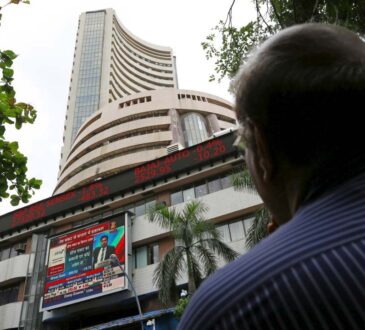
“I’ve never seen people this pessimistic,” said Beijing hair stylist Wu Ming, who trades Chinese stocks on his phone when traffic in his salon is slow.
“During previous falls [in the market], there was always talk of buying the dip. No one is daring to say anything like that this time, to avoid looking like a fool,” he told Barron’s.
The pessimism Wu refers to applies to the Chinese and Hong Kong stock markets, which combined have seen nearly $6 trillion wiped away since their most recent peak three years ago.
Government attempts to stem the fall have done little, such as the latest effort restricting short selling. But the gloom echoes a wider sentiment heard across China in reference to people’s housing investments and jobs, and from small businesses and recent graduates. Sentiment in the country—among investors, foreign firms, and consumers—has been wrecked by the crashing wave of decades of rapid growth.
A large proportion of Chinese citizens directly invest in its stock markets compared with the West, where professional institutional investors dominate, so there is much direct exposure to average citizens with little knowledge of the whims of the market.
Advertisement – Scroll to Continue
“Mom-and-pop investors are the backbone of trading in China’s domestic A-shares market, so the miserable performance of the last two years is probably pushing trading volumes to very low levels,” said Doug Young, director of Hong Kong-based Bamboo Works, which analyzes listed Chinese companies. “A-shares” refers to Chinese firms trading on the mainland bourses in Shanghai or Shenzhen.
The market fall is, of course, tied to the overall economy’s decline and absence of recovery since the pandemic. This, in turn, is tied to a ruinous decline in the long-troubled property sector, which makes up at least a quarter of China’s economy and is the main place where average Chinese invest their savings.
“We’re probably seeing lots of such retail investors put their dwindling savings into bank accounts, of all places, as there really isn’t any other safe place to invest your money right now, considering the terrible real estate market,” Young told Barron’s from Hong Kong, which featured the worst-performing major market in the world last year.
Advertisement – Scroll to Continue
There is now a vicious cycle of poor economic performance fueling pessimistic sentiment and vice versa, exacerbating the market decline, said Kane Hu, chief analyst at Peak Investment, a boutique stock brokerage in the western metropolis of Chengdu.
“When the bulk of people’s paychecks go to housing loans, and loan rates remain the same while property values plummet, people tend to grow conservative with their money,” Hu said.
As China’s youth unemployment rate surpassed 20% in July, Beijing stopped releasing the metric altogether. Multiple experts have told Barron’s they believe the actual number to be more than double the official rate. In the past year, Barron’s has spoken with more than a dozen youth unable to get jobs, all of whom had degrees from prestigious or Western universities.
Advertisement – Scroll to Continue
“Unemployed children are going bankrupt,” Hu said. “Mom and dad’s basements are stuck with unemployed adult kids.”
Day trader Wu’s assertion about optimism drawing ridicule online seems to bear out. On one of the most popular stock-trading forums on social media site Douban, one user tried to spin the bad times as an opportunity. “The entire market lacks confidence,” the post read. “But long-term vision could mean great eventual income. Remember that the best buying opportunity is when the market is going down, not up.”
It was immediately pilloried by commenters, many of whom said they had exposure to the market. “You could make this argument anywhere but in China,” read one response. “Every time I see an article like this, I know the end is far from near,” read another.
Advertisement – Scroll to Continue
Chinese banks don’t offer much interest these days since Beijing keeps lowering rates. “But most people believe that at least Chinese banks won’t fail, since the government will always bail them out if they run into trouble,” Young said.
That is little solace to citizens like car salesman Zhong Weiyi, 58, of Chengdu, who lamented to Barron’s in October about the shrinking value of his home. He doesn’t have much money in equities, but what he does have he is pulling out because he doesn’t see a bottom yet.
“Everyone who said that things would get better has been wrong,” he said.
Write to editors@barrons.com


